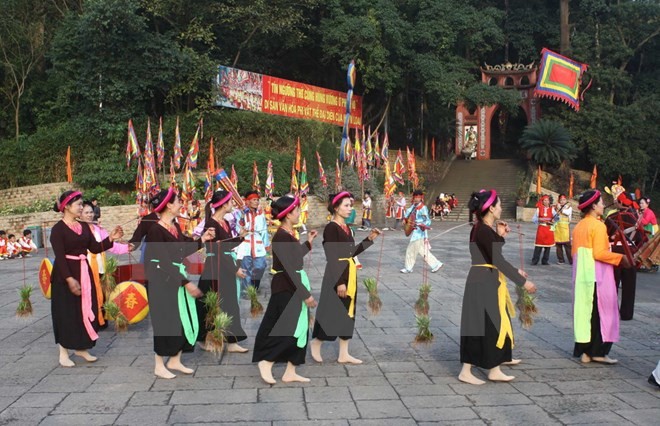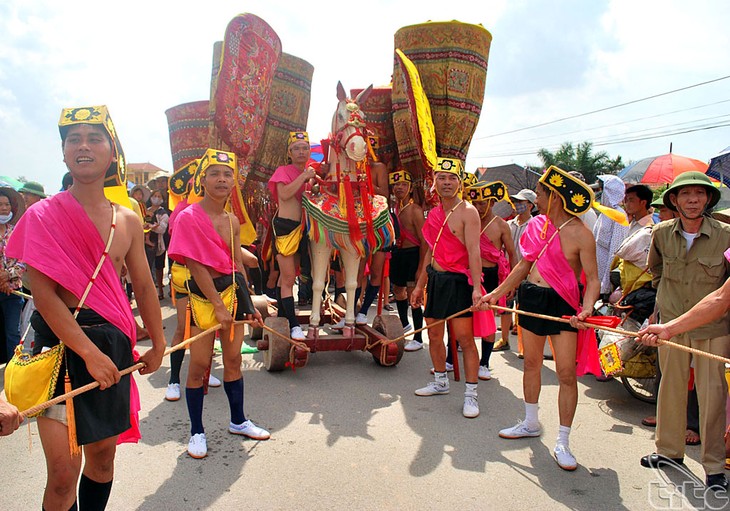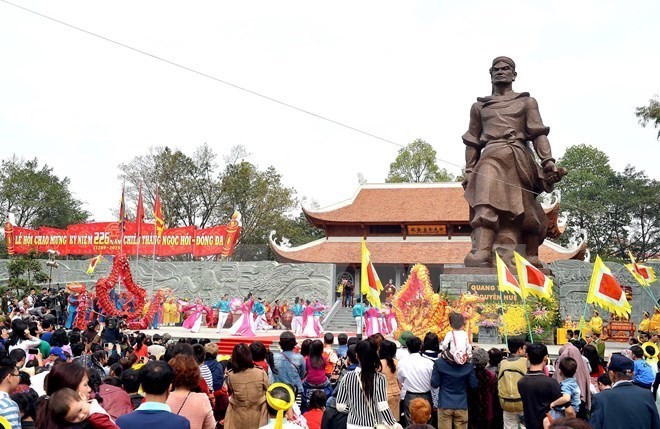(VOVworld)- Vietnam has more than 8,900 festivals including more than 7,000 folk festivals. They are intangible cultural heritages which have been preserved and promoted nationwide.

Tro Tram festival in Phu Tho- Photo: Anh Tuan (TTXVN) |
Vietnamese festivals are variously categorized as agricultural festivals, religious festivals, competitions of folk singing and games, and cultural festivals honoring local heroes and traditions. Researcher Vo Hong Thuat of the Vietnam Museum of Ethnology says: “The Tro Tram festival is a typical agricultural festival. There is a procession of a holy sheaf of rice plants. Traditionally, the most respected member of the family sows rice seeds in a selected rice field. During the sowing, we don’t fertilize the rice because we will gather a sheaf of the rice plants to worship the genie. We then harvest the rice and put it in the home owner’s room. We select the best rice seeds to offer the genie to pray for a bumper crop”.
Farmers in the Red River Delta have two crop intervals a year: the first one takes place lunar December and January and the second one in lunar June and July. In these months, they organize festivals to celebrate and show gratitude to their ancestors, predecessors, and gods.

Giong festival |
There are a lot of festivals in Vietnam throughout the year, but particularly in the spring. Spring is the interval between the two rice crops when farmers have more leisure time for festivals. Mr. Thuat says: “In the lunar calendar, the first month is the month of the Tiger representing strength. In the first month, people pray for good luck, happiness, and prosperity. That’s why many village festivals take place in the first months of the year”.

Ngoc Hoi Dong Da festival |
Traditional festivals embrace human values and historical events. Dating back to the 10th century the Tich Dien Doi Son festival in Duy Tien district, Ha Nam province, honors agricultural activities and the Vietnamese traditions: when drinking water, remember its source. The Giong festival in Phu Dong commune, Gia Lam district, on the outskirts of Hanoi pays tribute to Saint Giong, a legendary national hero. The festival has been recognized as an Intangible Cultural Heritage of Humanity by UNESCO. The Dong Da Ngoc Hoi festival commemorates the triumphant victory of King Quang Trung over foreign invaders. Nguyen Van Hung of Ho Chi Minh City attended the festival this year: “On the fifth day of the first lunar month, we commemorate the glorious victory of King Quang Trung Nguyen Hue and Tay Son troops against the Qing invaders in 1789. We need to preserve and promote our traditional festivals to educate our younger generation about Vietnam’s heroic tradition and inspire patriotism among the youths”.
Vietnamese people go to festivals for the fun but also to embrace their traditional culture and remember their roots.